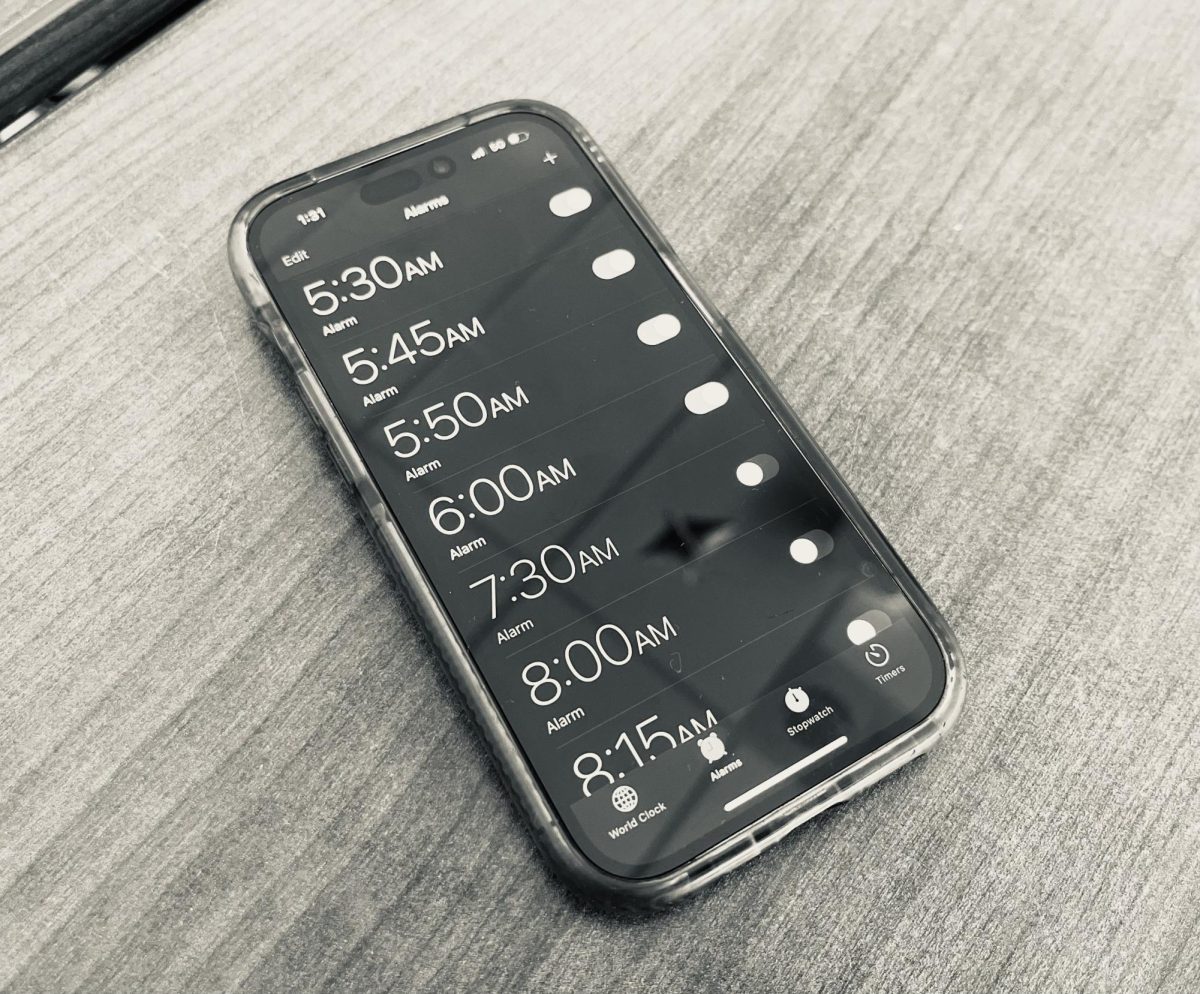5:30 a.m. 5:45 a.m. 6:00 a.m. The sweet and deadly sound of your alarm clock rings in your ears. Dazed, you reach over to turn it off with lost hours of sleep still gluing you to the bed. You ask yourself – What time did I go to bed last night? 10:30? Midnight? You forgot. You only know that after school, you made it to your extracurriculars, got home late, ate dinner, showered, and managed to complete all your homework for that one day. And maybe, if you’re like many sleep-deprived teenagers, a mental breakdown squeezed itself into that timeline too.
This daily schedule is a reality for many high school students. On average, “Teens need 9 to 9 1⁄2 hours of sleep per night—that’s an hour or so more than they needed at age 10,” says pediatrician Micheal Crocetti from John Hopkins Medicine
However, this does not happen most of the time. Things like sports, homework, part-time jobs, enrichment activities, and community service dominate our free time before and after school. And with that pile of commitments and school work stacked too high, sleep deprivation has become an epidemic and one of the most common health issues facing today’s teenagers.
According to Stanford Medicine, “Sleep deprivation increases the likelihood teens will suffer myriad negative consequences, including an inability to concentrate, poor grades, drowsy-driving incidents, anxiety, depression, thoughts of suicide, and even suicide attempts.”
Sleep deprivation is a problem that knows no economic or social boundaries.
A large cause of sleep deprivation among teens is their disrupted physiology (our body’s natural functions) struggling to survive in an environment that constantly negatively influences it.
During your teenage years, the melatonin hormone levels in your body undergo a large shift. This means a teen’s natural hormonal sleep cycle shifts from early bedtimes to late ones. That is why most teens don’t fall asleep until 10 or 11 p.m. “Effectively, they are in a different time zone than the rest of us,” says Dr. Max Van Gilder, a pediatrician from Manhattan, in an article from Stanford Medicine.
Yet, the naturally late bedtimes of teens unfortunately don’t compare well with early school start times, especially when the majority of teens are not functional until after 9 a.m.
After going to bed late and only sleeping for a short amount of time, most teens are jolted awake, pulled out of their natural sleep rhythms and forced to face the day without proper rest. Thus, those precious hours of rest are lost and teens are at risk of mental health issues like depression or anxiety, accidents and an overall decrease in work ethic and physical and emotional capabilities.
“The typical high school student’s natural time to fall asleep is 11pm or later.” says Dr. Allison Baker, an adolescent psychiatrist, in a recent article from the Child Mind Institute. “We really need to adjust the environment instead of asking teenagers to adjust their physiology,”
As a response to the lack of sleep teens get during the week, many try to make up for it on the weekends by sleeping 11 or more hours, rather than just six or less. And while this seems productive in the moment, and feels so good to most, it only further interrupts a teen’s sleep cycle.
Technology is another substantial factor adding to the teen sleep deprivation crisis in America. Teens are spending countless hours each day on social media, computers, and in front of screens that produce ‘blue light’. This particular light emits a special frequency, and when that frequency hits receptors in the eye, it sends a signal to the brain that stops the production of melatonin, suppressing the feeling of tiredness in teens.
While it’s hard to balance screen time in a social-media-dominated society, and the amount of homework to be completed online has only increased in the 21st century, it’s important to be aware of the risks and try to set technology aside to protect your sleep.
The most effective action to take to regain better sleep patterns is creating a screen-free bedroom before bed and setting a technology curfew for yourself. These are both habits that can help save your sleep – and possibly your life.
Despite our society constantly emphasizing the importance of being ‘well-rounded’ for a better future, sleep is heavily undervalued. Overscheduling is common among many students. Between juggling extracurriculars, sports practices, and often more than four hours of homework each day, most students are forced to sleep less and complete more activities in order to meet the demands of their schedules and stay competitive among the ranks of the college admission battle.
“Kids are going nonstop until they fall asleep exhausted at night. There is not an emphasis on the importance of sleep, as there is with nutrition and exercise,” says Nanci Yuan, a clinical associate professor of pediatrics at Stanford University. “They say they are tired, but they don’t realize they are actually sleep-deprived. And if you ask kids to remove an activity, they would rather not. They would rather give up sleep than do an activity.”
The epidemic of sleep deprivation in teens is only increasing as the world continues to advance and requires more and more of everyone to get through the day. Early school start times influence morning flows, extracurriculars and homework consume teens afternoons, and the bar of expectations for students continues to rise.
So take action where you can, put your phone away when you sleep and talk to your friends and family about building better sleep habits, because the society of zombies that we see in today’s teens isn’t science fiction, it’s the direct result of systemic sleep deprivation. Addressing it means recognizing that teens’ bodies and brains are wired differently, and that adequate sleep is not a luxury — it’s a necessity for a thriving, fully awake generation.


